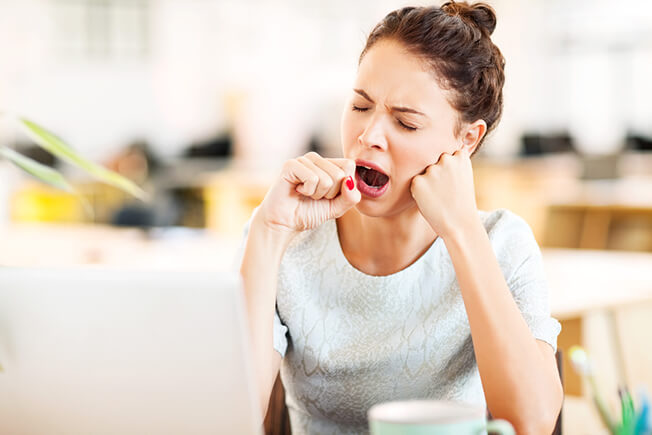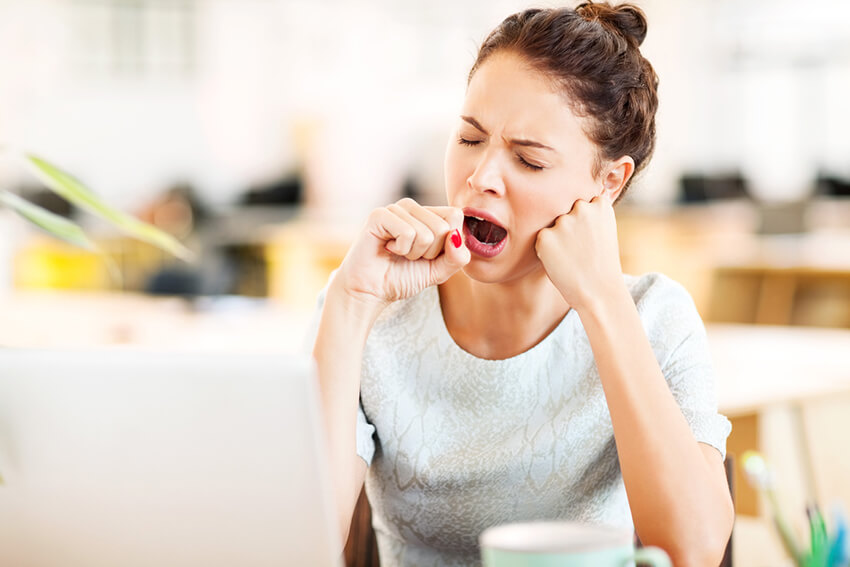Try these diet changes to improve your energy

If you've ever found yourself struggling to wake up in the morning or yawning through a midday meeting, you know how difficult it can be to get through your to-do list when you're short on energy.

If this sounds familiar, we have tips on diet changes that can help you keep your energy up throughout the day.
Eat for energy
Eating can be a pleasurable experience and it's okay to eat foods you enjoy and indulge every now and then. But remember that food is also fuel—we should be eating foods that give us energy to get through the day. Look for foods with a low glycemic index, which allow sugars to break down more slowly to allow you to sustain energy throughout the day.
Think about how you feel after you eat a heavy meal or dessert. Our bodies absorb sugars from refined or processed foods more quickly, which is what leads to that sluggish feeling known as a "sugar rush." Avoid this feeling by opting for foods high in protein and fiber such as salmon, avocado, nuts, fresh fruits and vegetables.
Don't rely on caffeine
If you're feeling tired or sluggish, reaching for a cup of coffee can be tempting. After all, so many of us rely on a cup to help us jumpstart our day. But caffeine isn't always the best choice to help us feel awake and energized.
Caffeine from coffee is a stimulant and while it can be effective in helping increase energy levels, drinking too much coffee can lead to feelings of anxiety and restlessness. Opt for a cup of decaf green tea instead, which provides antioxidants that reduce inflammation and protect us from certain diseases.
Additionally, having caffeine too late in the day can cause insomnia. If you're a caffeine drinker, play it safe and try to stick to one to two cups of coffee per day and finish them before lunch time—no later than 2:00 pm.

Skip happy hour and drink water
Having a drink at the end of your day may be your preferred way to unwind, but drinking too early in the evening may mean you don't have the energy to spend time with family or do the things you enjoy, like watching TV, reading or catching up with friends. Drinking too early or drinking too much can affect your sleep cycle, so it's best to save your drink to have with dinner or later in the evening as the day quiets down.
Whenever you have a drink, remember to do so in moderation—one drink per day for women and two drinks per day for men.
Dehydration is a common culprit for fatigue. When you're dehydrated, it can impact the flow of oxygen to the brain and requires your heart to work to pump oxygen throughout the body, which can make you feel tired. The solution? Hydrate—but not with just any liquid.
Make it a point to drink water frequently throughout your day. Consider drinking an eight-ounce glass of water in the morning, midday and in the evening with your meal to make sure you're staying hydrated throughout the day. Not only is this good for your health, but it can help you feel more awake and alert than if you were hydrating with sports drinks, sodas or coffee.
Make time for movement and prioritize sleep
Set aside time every day to move. Whether it's a planned workout, a quick yoga session when you wake up or in between meetings or taking a walk to unwind at the end of the day, daily movement can improve your energy.

And, to feel fully rested and prevent daytime fatigue, you should aim to get eight hours of sleep per night. This might feel impossible, but as much as possible you should keep a consistent bedtime. But that doesn't mean going upstairs to scroll through social media or watch a movie. When you go to bed, keep your bedroom free of electronics—better yet, turn off your TV and phone an hour before bed.
Some other things you can do for a more restful night's sleep:
- Eat your last meal at least three hours before going to sleep.
- Keep the temperature in your room cool.
- Opt for soft or dim lighting.
- Practice meditation. Start with five deep breaths before getting in bed to help unwind from the day.
If you're really having trouble staying awake during the day, a nap is okay but don't make it a pattern. Napping during the day, especially if it's later than lunchtime, can affect your sleep quality at night.
In some cases, fatigue and lack of energy could be a result of underlying medical conditions. If you've made changes to your diet and lifestyle and are still dealing with low energy, talk to your primary care provider about additional testing to determine the cause.
Next steps:
Learn more about primary care at Main Line Health
Explore dietitian-approved recipes